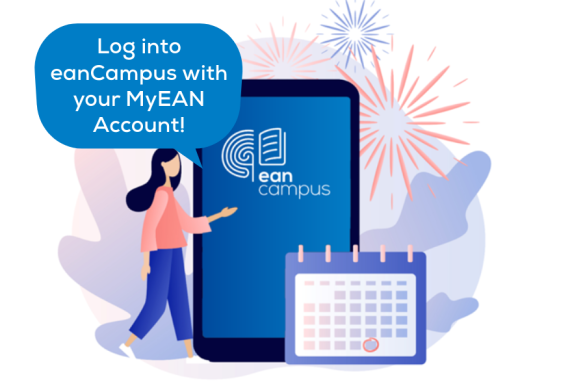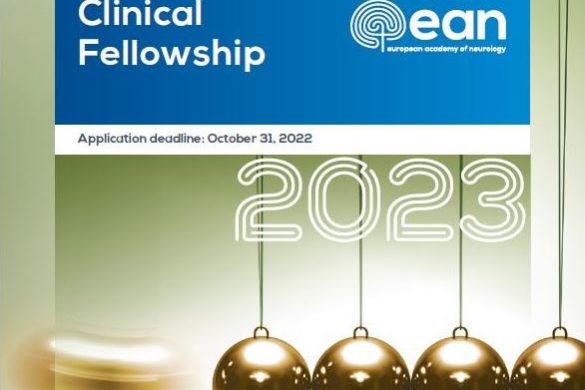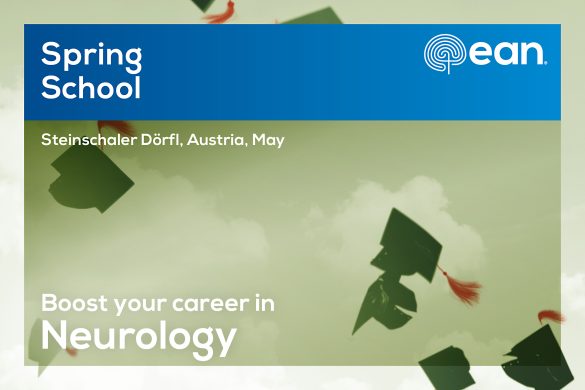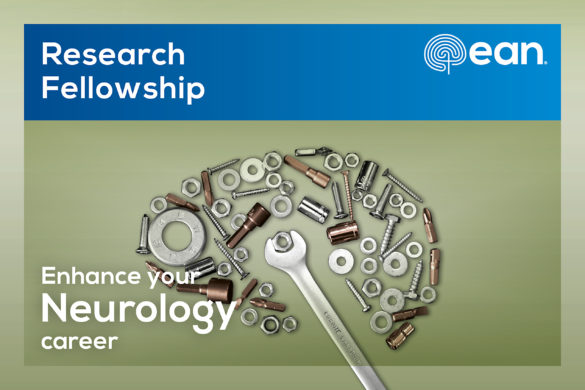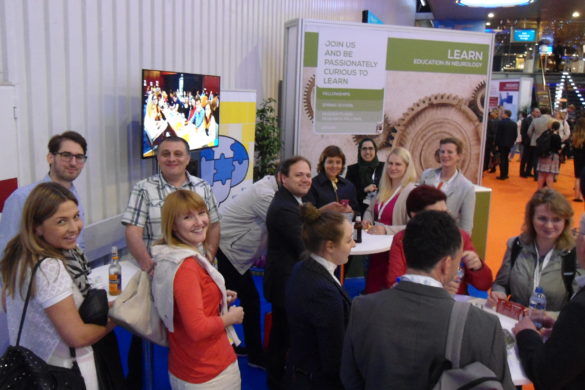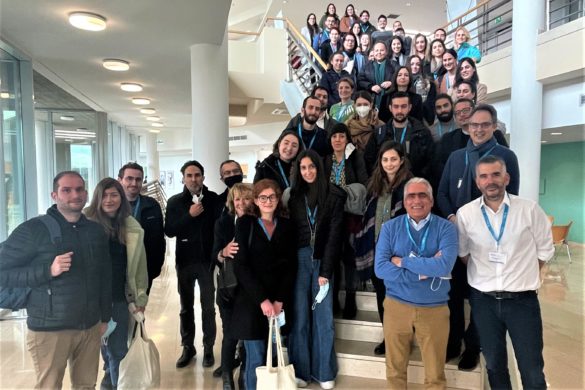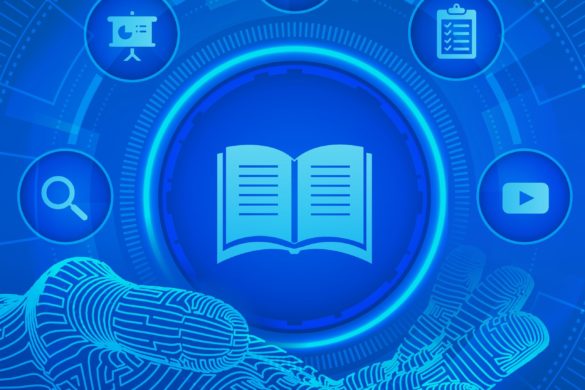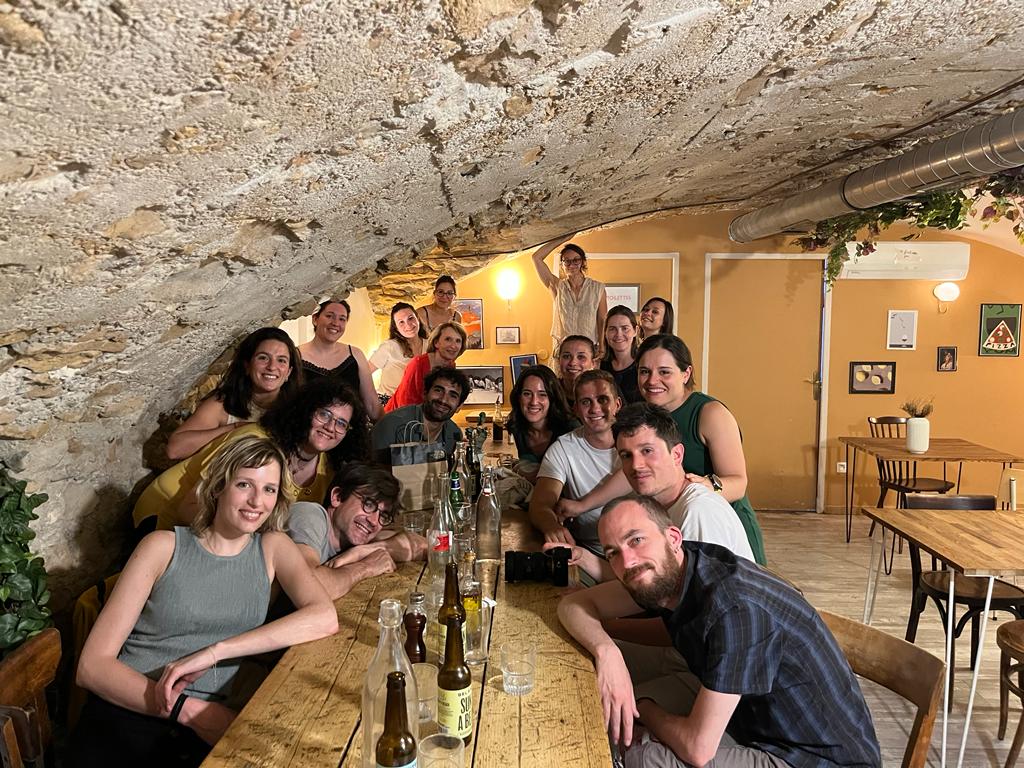
Inés Esparragosa Vazquez, Pamplona, Spain
Hosting department: Neuro-oncological Department of Hospital Pierre Wertheimer, Lyon, France
Supervisor: Prof. François Ducray
…
Inés Esparragosa Vazquez, Pamplona, Spain I am glad to share the experience of my one-year stay on an EAN Research Fellowship at the Neuro-oncology department of Lyon, France. During this period in Lyon, I had the opportunity to work under the supervision of Prof. François Ducray, taking part in consultations with Neuro-oncology inpatients and day hospital patients.
Coming from Pamplona, Spain, where I did my residency in neurology, I discovered my sincere passion for neuro-oncology, specifically for the follow-up of patients with glioblastoma, the most frequent malignant brain tumour in adults. In Pamplona, I started to contribute to clinical research trials to treat high-grade glioma in adults and I got used to brain image analysis in glioblastoma patients (the topic of my PhD).
My stay in Lyon let me contribute to clinical research projects and was such a great opportunity to complete my training in this topic, as well as to get acquainted with the analysis of brain MR images in patients diagnosed with high grade glioma, that I hope in the near future will help me to finish my PhD project.
From the beginning of my fellowship in Lyon, I was so touched by the kindness and humanity in accompanying patients, and also by the enthusiasm of the team for research to improve the prognosis of patients suffering from brain tumours.
I am very grateful for the welcome from the beginning and for everything I learned during my stay in Lyon. The whole clinical and research team, as well as the nurses with whom I have worked day by day during my stay, have helped me to feel like a family, always welcomed and supported during working hours.
I would like to thank the EAN for the grant it has awarded me. Thanks to it, I can advance my experience, contribute to the knowledge needed to treat brain tumour patients at all stages of their disease, and engage in research to improve patients’ future.
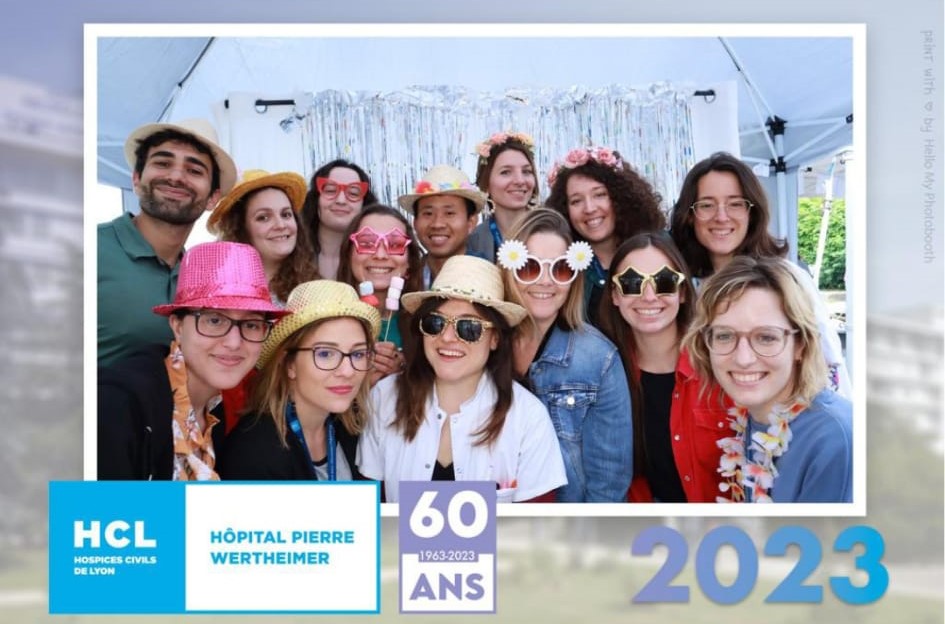
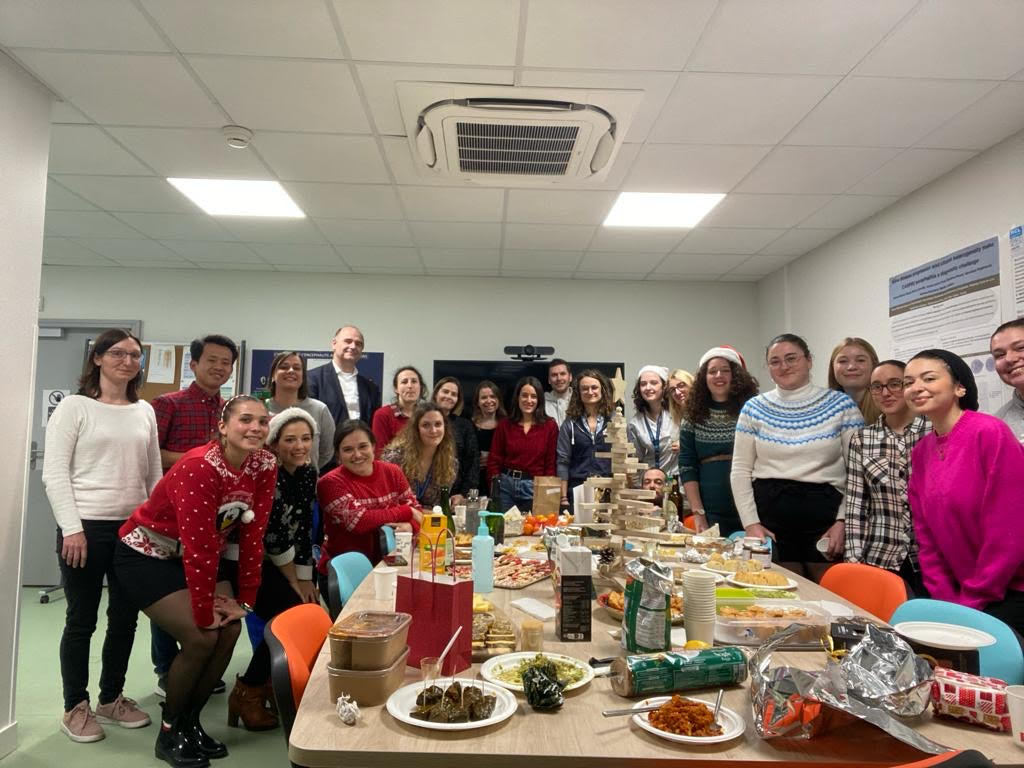
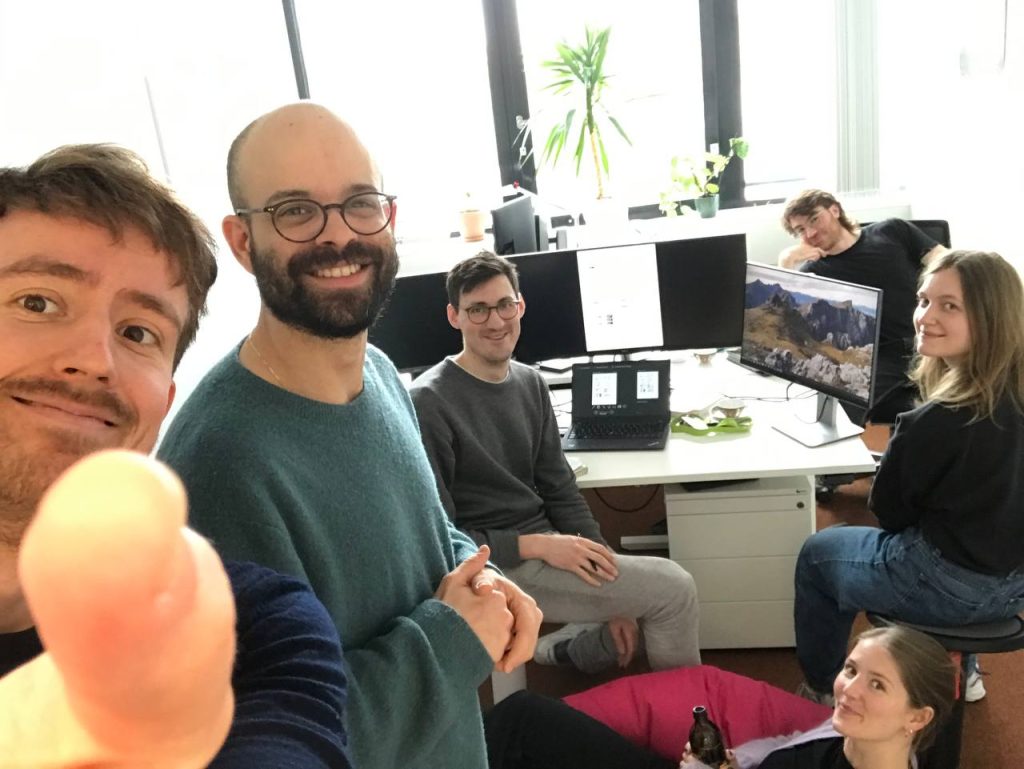
Miron Gadi, Tel Aviv, Israel
Hosting department: Charité – Universitätsmedizin Berlin, Department of Neurology (in collaboration with the Epilepsy Center Berlin-Brandenburg)
Supervisors: Prof. Martin Holtkamp & Dr Christian Meisel
…
I had the opportunity of spending a year at the Epilepsy Center Berlin Brandenburg and the Computational Neurology Laboratory at Charité Berlin, under the supervision and guidance of Prof. Martin Holtkamp and Dr Christian Meisel. Our research centered on cognitive impairments in drug-resistant temporal lobe epilepsy—a topic that I find not only challenging but also impactful for individuals living with epilepsy. I am immensely thankful for the support from the European Academy of Neurology (EAN) Research Fellowship programme.
The primary aim during my fellowship was to identify structural and neurophysiological markers of cognitive impairment in drug-resistant temporal lobe epilepsy (TLE). We analysed multimodal data from a large cohort of persons with drug resistant epilepsy undergoing presurgical evaluation, which included clinical assessments, neuropsychological testing, structural MRI, and invasive EEG data. This scope gave me the chance to learn new research methodologies, collaborate with brilliant colleagues, and absorb knowledge from experts across various clinical and neuroscience disciplines. Our work has resulted in interesting findings that I hope contribute to the fields of cognition and epilepsy. Some of these findings have been recently published in Annals of Neurology.
During the fellowship, the work environment was extraordinarily supportive and collaborative. I had the pleasure of meeting numerous new colleagues and friends and thoroughly enjoyed discovering Berlin and improving my German language skills. I am sure that the connections made during this period will stay with me for a long time and continue to influence my personal and professional growth.
I want to thank the EAN for awarding me this fellowship. It was a great opportunity to work closely with experts like Prof. Holtkamp and Christian Meisel and to be part of a dedicated team committed to research. Living and working in Berlin provided a unique cultural and professional learning experience. I’m excited and looking forward to further applying the knowledge and skills I have gained to future research, that can hopefully contribute to understanding of epilepsy and cognitive impairment.
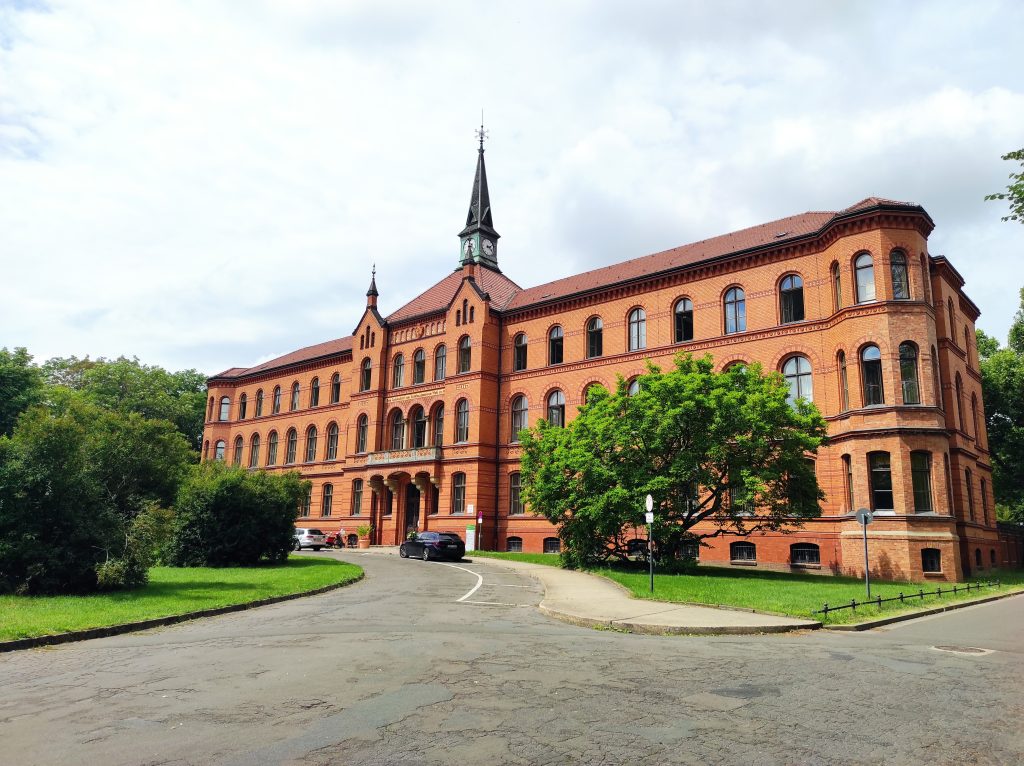
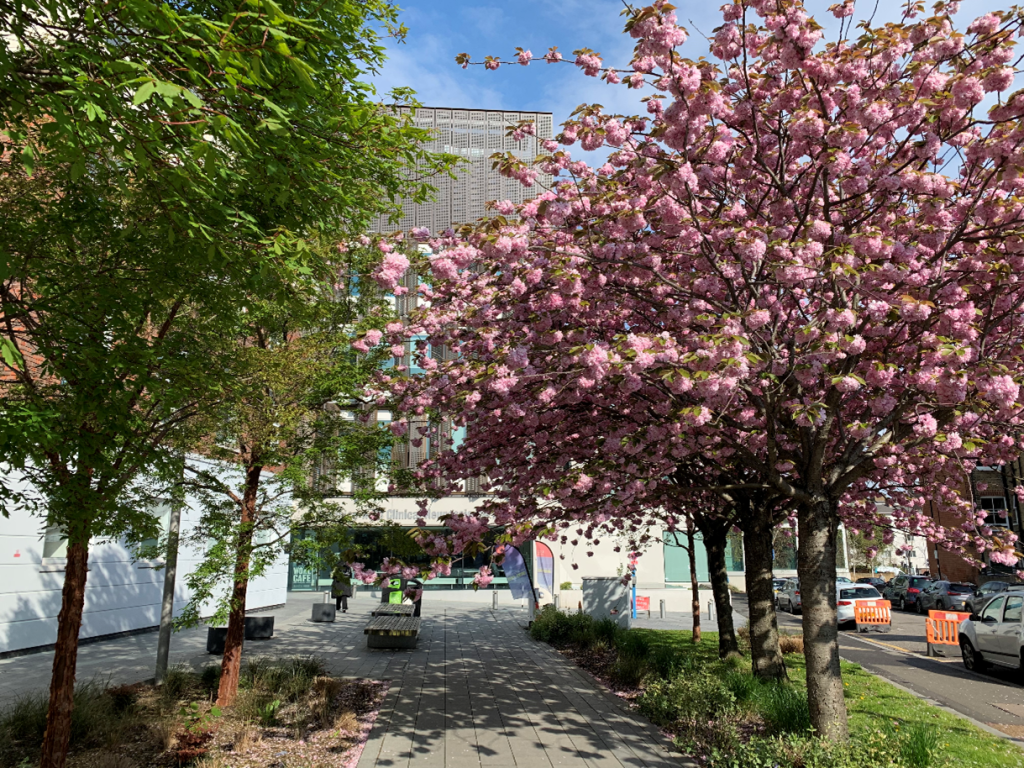
Cecilia Friedrichs-Maeder, Bern, Switzerland
Hosting department: RichardsonLAB, Department of Basic and Clinical Neuroscience, King’s College London, UK
Supervisors: Prof. Mark Richardson
…
I would like to express my gratitude to the European Academy of Neurology (EAN) for the opportunity to undertake a Research Fellowship at the Richardson Lab at King’s College London (KCL). As a trained neurologist with a background in engineering and a specialisation in epilepsy, my research focuses on the effects of pharmacotherapy on large-scale brain network dynamics, seizures, and mechanisms of pharmacoresistance. The goal of my fellowship at KCL was to acquire training in transcranial magnetic stimulation (TMS) coupled with electroencephalography (EEG), an established non-invasive method for probing cortical excitability.
Under the guidance of Prof. Richardson and his team, I acquired both theoretical and practical knowledge about TMS-EEG for measuring brain excitability. This training enabled me to transfer my approach and knowledge from intracranial electric stimulation to adapt the experimental design and TMS-EEG protocol, increasing the sensitivity to detect subtle changes in excitability induced by antiseizure medications.
I am especially grateful to Prof. Mark Richardson for his support and for facilitating collaborations with experts in various technical aspects of TMS-EEG, significantly enriching my research experience and ensuring the robustness of our methodological advancements. I also attended lab meetings, specialised colloquiums for epilepsy surgery, and rounds on the seizure ward at King’s College Hospital, which further enriched my learning experience. The training I received in TMS-EEG was invaluable, providing me with the skills and knowledge necessary to set up similar studies at my home institution.
I would like to thank the entire team at the Richardson Lab for their warm, friendly, and supportive attitude. Working under Prof. Richardson’s supervision allowed me to advance my research skills in neurostimulation techniques.
I am deeply grateful to the EAN for this unique opportunity. The knowledge and experience gained during the fellowship will significantly advance my research capabilities and help me work towards my goal of optimising epilepsy treatment.





